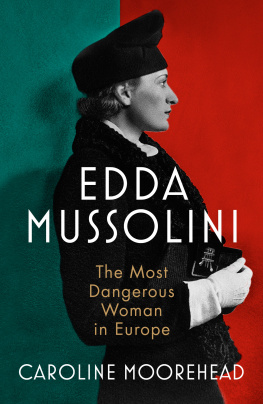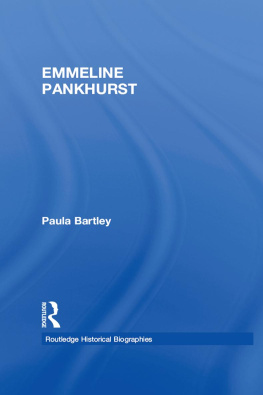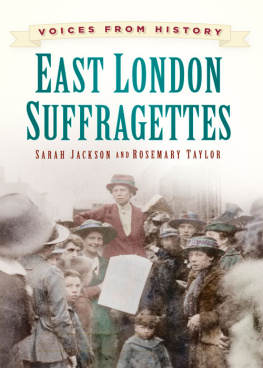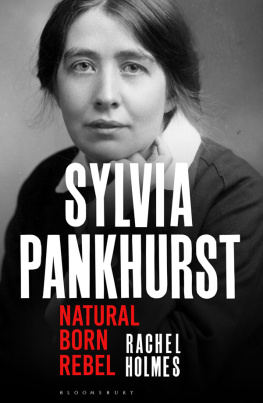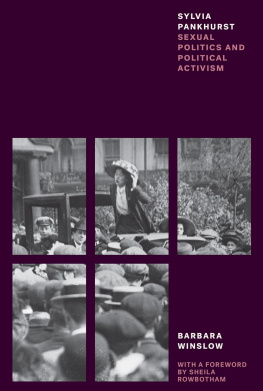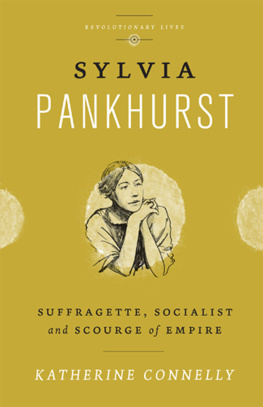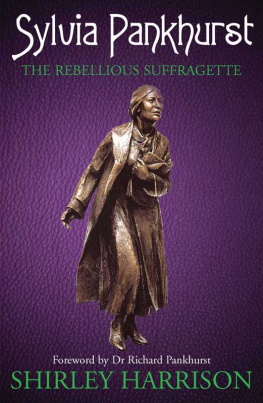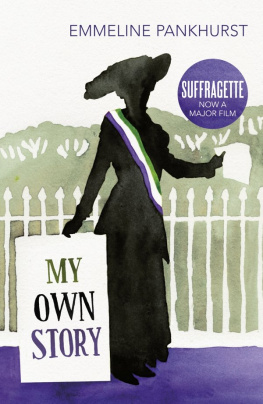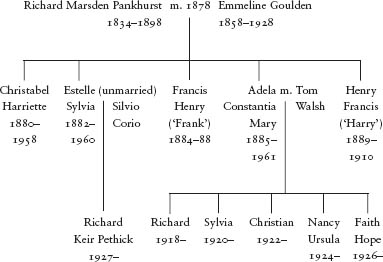Contents
About the Book
The suffragettes outraged Victorian society, yet behind the protests, arrests and hunger strikes, the personal lives of Emmeline Pankhurst and her daughters were just as dramatic. Martin Pugh reveals the full story of this unique family: Emmeline, the domineering mother; Christabel, the favourite daughter who became an Adventist and admirer of Mussolini; Sylvia, the scarlet woman; and Adela, banished to Australia after a bitter rift. It is an astonishing account of the triumphs and tragedies of four extraordinary women.
About the Author
Martin Pugh was Professor of Modern British History at Newcastle University until 1999, Research Professor in History at Liverpool John Moores University from 1999 to 2002 and is a fellow of the Royal Historical Society. He has written twelve books on aspects of nineteenth and twentieth century history and is on the board of BBC History Magazine. His new book, We Danced All Night: A Social History of Britain Between the Wars is published by Bodley Head this year.
Also by Martin Pugh
Hurrah for the Blackshirts! Fascists and Fascism in
Britain Between the Wars
We Danced All Night: A Social History of Britain
Between the Wars
Illustrations
. Emmeline Pankhurst, 1896.
. Richard Marsden Pankhurst, 1879.
. Emmeline with Harry, 1900.
. Christabel, Adela and Sylvia Pankhurst, 1890.
. Annie Kenney, 1908.
. Sylvia Pankhurst in an Arts and Crafts Movement Frock, 1910.
. Adela Pankhurst, 1908.
. Emmeline with Vera Holme on tour in Scotland, 1909.
. Adela with Annie Kenney in the Suffragette Field, Batheaston, 19091912.
. Emmeline with Nurse Pine after a hunger strike, 1913.
. Young woman on a bus.
. A postcard of a Suffragette commanding her husband, 1913.
. Suffragettes starting on a tour of London from the WSPU, May 1913.
. The riot as Emmeline attempted to enter Buckingham Palace, 1914.
. Christabel at the East Islington election, 20 October 1917.
. Emmeline with her four adopted girls, 1919.
. Sylvia with Richard, c. 1929.
. Christabel, Sylvia and Ada Goulden Bach at Emmelines funeral, Brompton Cemetery, 1928.
. Sylvia leading fellow activists outside The House of Commons, 27 April 1948.
. Adela Pankhurst-Walsh making a speech from a platform, January 1950.
For
Fran, Hannah and Alastair
It is not right for women, any more than for men, to have characters of tepid milk and water, to be incapable of a divine rage and to be impotent to resist oppression
Christabel Pankhurst, The Suffragette, 10 January 1913
The Pankhurst Family
Introduction
The Pankhursts are at one and the same time very familiar and yet rather elusive. Emmeline Pankhurst invariably emerged as the leading woman of the Millennium from the many surveys conducted during the late 1990s. In her role as an Edwardian hunger-striker in the fight for womens votes she gave us one of the enduring images of the twentieth century. In spite of this, one looks in vain for a serious biography of her. Even the names of her family members are frequently confused; the press often refers to an entirely non-existent Emily Pankhurst, for example.
For many readers, the Pankhursts come as a shock on close inspection, for the explosive mixture of idealism, self-sacrifice and strategic insight that enabled its members to contribute so notably to national life also made them ruthless, high-handed and self-righteous. They formed what we would nowadays recognize as a rather dysfunctional family. Yet for some years now we have been encouraged by pundits, prime ministers and large sections of the press to believe in the superiority of Victorian Values, in the notion of the big, happy Victorian Edwardian family, and in the decline of parenting skills during the last three generations. To examine Victorian families in any depth is to be thoroughly disabused of such simplistic notions. The consequences of Victorian family life in the shape of the emotional scars borne by the children of the era are too extensive to miss. We must recognize, therefore, that Richard and Emmeline Pankhurst cannot be separated from the era in which they lived. Though Radicals and rebels in some respects, they reflected more of the conventional thinking of middle-class Victorians than they would have cared to admit. This meant, among other things, regarding children somewhat narrowly as potential adults; it also meant breaking up families with an abandon which we would regard as callous. To this must be added a further element. It is a platitude that even routine political careers are detrimental to family life. How much more damaging, then, is the pursuit of a great, all-consuming crusade? Even the most saintly figures have, often unconsciously, forced their immediate relations to suffer for their principles and ambitions; consider, for example, the impact of Gandhis protracted struggle to free Indians from the grip of the British Raj upon his wife and eldest son. It is just and right that women should honour [Emmeline], wrote Adela in the 1930s, for if we lost her as a mother, they gained her as a political leader. We need to temper the understandable bitterness expressed by Adela and Sylvia with some understanding of the context of Emmelines life and with sympathy for her plight in the long years of widowhood after 1898 spent coping with four children and financial insecurity. Emmelines family was disrupted by the untimely deaths of Richard, of four-year-old Frank and of twenty-year-old Harry. Her second family of four girls, whom she adopted in a fit of patriotism in the First World War, also broke up in the 1920s. In 1914 she ruthlessly engineered a rupture with Sylvia, who became an unmarried mother, and with Adela, who lost all direct contact once she had been expelled to Australia. As a result Emmeline never saw her grandchildren and she died in comparative poverty in 1928. Thus her life was a mounting personal tragedy played out against the background of her achievements in the public sphere.
But the question remains why such a famous family has been so neglected by biographers. Emmeline herself produced the unrevealing, ghost-written The Story of My Life in 1914, and Sylvia published The Life of Emmeline Pankhurst in 1935, which added little to what was already known. After that, nothing. In the course of my own work I have been assured by several publishers, keen to publish Pankhurst biographies, that female authors have recoiled from the politics and personalities of both Emmeline and Christabel, a claim corroborated by the fact that the books which have appeared have been notably hostile. Part of the problem consists in the difficulty in explaining exactly where the Pankhursts stand in relation to the modern womens movement. This might seem obvious because of the lasting inspiration they gave to women (and men) to fight gender inequality and injustice. However, Emmeline, Christabel and Sylvia all became both disappointed with the results of winning the vote and detached from the womens movement. Christabel even went so far as to repudiate the whole suffrage cause after 1920. Inevitably there has been some reaction to the Pankhursts dramatic ideological shifts, especially the pronounced move to the right by Emmeline and Christabel, which appears eccentric from the perspective of the modern womens movement. This helps to explain why Sylvia has received much more attention in recent years; not only her feminism and her consistently left-wing views, but her opposition to racism, remarkable for someone born in 1882, marks her out as a much more recognizably modern figure than other members of her family.
Next page

